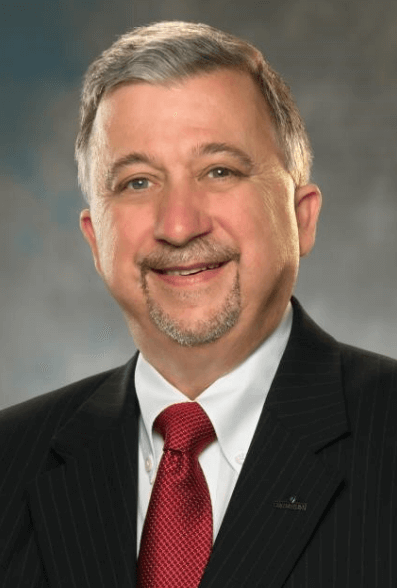This material contains a discussion of mental health and substance abuse.
In recent years, the United States has faced a growing crisis in mental health and substance use disorders, exacerbated by the global pandemic and increasing social and economic pressures. As the demand for comprehensive and accessible care escalates, the call for systemic change in our approach to mental health and substance use care has become more urgent than ever.
While individual efforts and local programs provide essential support, they often fall short of addressing the complex, intertwined challenges that characterize the current state of mental health care. Here on The Healthcare CEO Show, we’ll explore why systemic change is beneficial and necessary to create sustainable improvements in the lives of millions. We sat down with David Guth of Centerstone to hear how his company brings a unique opportunity for this in the healthcare sector.
Is Systemic Change for Mental Health and Substance Care on the Horizon?
Systemic change is crucial for addressing the gaps in mental health and substance use care nationwide. While progress has been made, significant barriers still prevent many individuals from accessing the support they need.
Amid the pandemic, there has been a noticeable shift in the perception of mental health. The increased awareness of mental health challenges and the impact of social isolation has led to a more open conversation about mental well-being. Many individuals and organizations recognize the importance of mental health support and actively seek ways to address the issue.
The Increase in Demand for Mobile Services in Healthcare
During the pandemic, there has been a significant surge in the demand for mobile services in the healthcare industry. Centerstone has experienced a notable increase in call volume and virtual interactions through its call center and online platforms. This surge has resulted in the need for additional resources to accommodate the influx of new patients seeking clinical services and support.
Telehealth has played a crucial role in connecting clinicians with patients, especially those who may not have access to in-person care. The pandemic accelerated the adoption of telehealth, leading to significant changes in healthcare delivery. However, it remains to be seen whether telehealth will continue to thrive independently or if a blended approach combining in-person and telehealth services will become the norm.
It’s Time for Innovation in Healthcare Recruitment Methods
Traditional recruitment methods are undergoing a significant transformation, and the days of solely relying on job postings are evolving. With the growing realization that professionals can work from anywhere, the job market has become more national in scope. As a result, organizations like Centerstone are pioneering innovative approaches to recruitment by engaging with potential candidates earlier in their career journey.
What is Centerstone seeing potential candidates care about most in their recruiting efforts? Individuals seeking companies with a strong reputation and ethical values. Particularly in clinical areas, quality training and the chance to make a meaningful impact on people’s lives are significant factors in attracting and retaining talent.
The Importance of Employee Satisfaction in Healthcare
Team member satisfaction is crucial for maintaining a motivated and engaged workforce. Satisfied employees are more likely to stay with the organization, resulting in reduced turnover and higher productivity. Additionally, they contribute to a positive work culture and customer experience. To maintain employee satisfaction, organizations can focus on providing opportunities for growth and development, creating a supportive work environment, offering competitive compensation and benefits, and recognizing and valuing employees’ contributions.
Here are some strategies for maintaining employee satisfaction:
- Provide opportunities for career advancement and skill development
- Foster a supportive and inclusive work environment
- Offer competitive compensation and benefits packages
- Recognize and appreciate employees’ efforts and achievements
- Encourage open communication and feedback
What Books Do You Recommend for Other Healthcare CEOs?
If you’re looking for a compelling read that delves into the opioid crisis, “Dreamland” by Sam Quinones is a must-read. This book provides a detailed exploration of various aspects of the opioid epidemic, offering valuable insights into its impact. Also, “Canary in the Coal Mine,” focuses on the opiate and AIDS epidemics in a rural county in Indiana, shedding light on the transformative efforts within the community to address addiction.
For a thought-provoking perspective on progress and the future, “Utopia for Realists” by a young economist is recommended. This book offers valuable insights that prompt readers to reflect on the broader scope of human progress, providing a compelling narrative that is especially relevant today.
What Have the Healthcare Industry Challenges Recently Taught You?
Guth has gained a renewed sense of humility and gratitude for being able to contribute to healing in his field. His interactions with staff during the pandemic have highlighted individuals’ remarkable resilience and sacrifices. Witnessing the heroics and extraordinary sacrifices made by people for their families, communities, and nation has deeply impacted him. Through these experiences, Guth has developed a profound appreciation for the strength and selflessness of frontline workers and the importance of collective responsibility in overcoming challenges.
Advice for Other Healthcare CEOs
Leading a healthcare organization amid significant changes requires boldness and adaptability. Embracing the ongoing transformations in the healthcare landscape is essential for shaping the industry’s future. As a leader, it’s crucial to prioritize learning new skills and fostering a culture of innovation within your organization. Encourage your team to embrace change and view it as an opportunity for growth and improvement. Recognize the resilience and sacrifices made by your staff, and foster an environment that supports their professional development and well-being. Remember, navigating uncharted territory presents an opportunity for impactful leadership and positive change.
Self-Care Tips for Healthcare CEOs
During the early stages of the pandemic, Guth realized the toll it was taking on his well-being. The long working hours, lack of exercise, and neglect of personal time resulted in significant weight gain. Recognizing the impact it had on himself and his team, Guth made deliberate changes to prioritize self-care.
Strategies for Self-Care
- Take regular breaks and time off to recharge
- Incorporate exercise and physical activity into your routine
- Spend quality time with family and loved ones
- Seek support and accountability from colleagues and team members
By making these adjustments, Guth shed the extra weight, engaged in regular exercise, and created a healthier work-life balance. His proactive approach improved his well-being and set a positive example for his team, emphasizing the importance of self-care in maintaining personal and professional resilience.
What is a Chief Satisfaction Officer?
Leadership roles in healthcare are evolving rapidly, with new titles emerging unprecedentedly. One of the latest additions to the C-suite team is the Chief Satisfaction Officer. This position oversees the maintenance and growth of the company culture and happiness, blending human resources and marketing aspects.
While the concept of a dedicated Chief Satisfaction Officer is gaining traction, it’s essential to recognize that fostering employee satisfaction and well-being is a collective responsibility within the organization. In healthcare leadership, the satisfaction of the staff directly impacts the quality of services provided to patients, making it a shared priority for all leaders.
How Have Healthcare Recruitment and Retention Strategies Changed Recently?
The pandemic has significantly changed recruitment and retention strategies for Centerstone and the healthcare industry. Realizing that professionals can work from anywhere, the job market has expanded nationally, prompting the need for innovative approaches to attract and retain talent.
New Recruitment Strategies
- Engaging with potential candidates early in their career journey
- Establishing partnerships with organizations providing test prep for clinicians
- Guiding individuals on in-demand specialties and job opportunities
Centerstone has adapted by proactively seeking potential candidates before they are actively seeking jobs, collaborating with companies offering clinician test preparation, and providing guidance on sought-after specialties to address the challenge of finding qualified professionals.
Changing Employee Preferences
- Seeking companies with solid reputations and ethical values
- Emphasizing compensation, benefits, and opportunities for skill development
- Prioritizing training and the chance to make a meaningful impact
Employee preferences have also shifted, focusing on reputable companies, competitive compensation, and the commitment to continuous skill development — the importance of quality training and the opportunity to make a meaningful impact on people’s lives.



